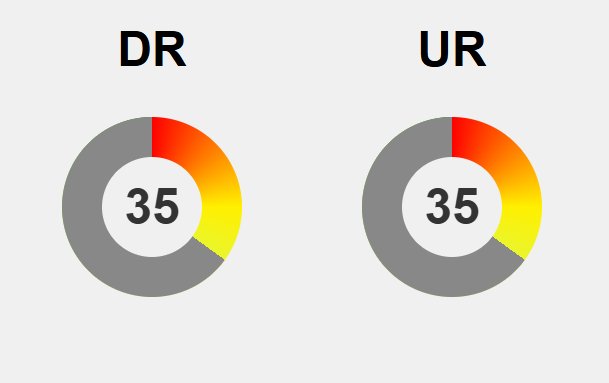Confucius’s teachings have endured for over two millennia, offering a timeless blueprint for moral clarity, social harmony, and responsible leadership amid chaos. His emphasis on virtues like benevolence, righteousness, and propriety remains profoundly relevant today, guiding modern societies through social fragmentation and leadership crises. But can ancient wisdom truly shape our complex world? This exploration reveals how Confucian principles—centered on inner virtue, ethical conduct, and moral exemplars—continue to inspire responsible decision-making and community cohesion. From educational reforms to governance models, these age-old virtues are being reinterpreted and integrated into contemporary institutions worldwide. Yet, the challenge lies in adapting these ideas to diverse cultural contexts without diluting their essence. As society grapples with rapid change, understanding and applying Confucian values could hold the key to building resilient, respectful communities—challenging us to ask: can ancient philosophy still light the way forward?
Unveiling the Timeless Relevance of Confucian Ethics in Modern Society
Confucius’s teachings have stood the test of time because they strike at the core of human relationships and societal well-being. His emphasis on morality, virtue, and respect offers a blueprint for how individuals can live with integrity and contribute to a more harmonious community. At a glance, it might seem like ancient philosophy, but its principles remain surprisingly relevant today, especially as modern societies face challenges like social fragmentation, mistrust, and leadership crises. These teachings remind us that personal character and ethical conduct are the foundation for building respectful, cohesive communities.
Confucius was born around 551 BCE in the small state of Lu, during China’s Spring and Autumn period—a time marked by chaos, warfare, and moral decline. Witnessing firsthand the destructive effects of political instability and social upheaval, he grew convinced that moral virtue and proper relationships could bring order and peace. His experiences in modest circumstances, combined with the tumult of his era, fueled his lifelong mission to promote education, ethical behavior, and social responsibility. This historical context helps explain why he placed such strong emphasis on cultivating inner virtue as the key to societal harmony.
Central to Confucian thought are ideas like morality, virtue, and social harmony. Morality involves adhering to ethical principles—values such as honesty, righteousness, and integrity—that guide daily conduct. Virtue, or “de,” refers to developing qualities like benevolence, righteousness, propriety, and wisdom—traits that define a morally upright person. Confucius believed that when individuals nurture and practice these virtues, their behavior influences others positively, creating a ripple effect that strengthens the social fabric. This focus on inner moral cultivation underscores his belief that a well-ordered society begins with individuals acting sincerely and morally, with their conduct radiating outward.
His teachings have had a profound influence not only in China but across many cultures. They shape ideas about leadership, education, and community building, emphasizing that true authority stems from moral integrity rather than mere power. In East Asia, many educational systems incorporate Confucian values alongside academic learning, fostering character development from a young age. Today, these principles continue to guide responsible decision-making and social trust, especially in a world where rapid change often tests our shared values. Their enduring appeal shows how adaptable and universal these virtues are, capable of guiding communities through modern challenges.
At the heart of Confucian philosophy is the belief that moral clarity and virtuous leadership are essential for societal harmony. Confucius taught that individuals should live with sincerity and practice virtues like benevolence, righteousness, and propriety. These virtues serve as a moral compass, shaping personal behavior and encouraging respectful interactions. He also believed that leaders who embody these qualities could inspire others and foster a culture of trust and responsibility. By emphasizing moral exemplars—leaders who prioritize virtue over authority—his teachings aim to create societies where respect and proper conduct are the norm, resulting in greater social stability and peace. This focus on moral example remains central to fostering thriving communities.
Understanding Confucius’s teachings today involves recognizing their relevance in addressing contemporary issues. His emphasis on virtues like benevolence and righteousness offers valuable guidance for responsible leadership and social cohesion. These principles remind us that character and moral clarity matter just as much as laws or regulations. By integrating these values into education, leadership development, and community initiatives, societies can nurture environments rooted in trust and mutual respect. Confucian ethics encourage us to see moral virtue not as an outdated ideal but as a practical foundation for building resilient, respectful communities—something more necessary than ever in our interconnected world.
Scholars and Practitioners Reinforce Confucian Virtues as Foundations for Ethical Leadership
Scholars and practitioners today see Confucian ethics as far more than an antiquated philosophy; they recognize it as a practical framework for modern leadership and community building. The core virtues—benevolence, righteousness, respect—are understood as essential tools for fostering moral integrity and social cohesion amid today’s complex societal challenges. Experts in ethics and political theory often emphasize that character and moral clarity are just as vital as laws or regulations. Leaders who embody these virtues can inspire trust and loyalty, creating environments where responsible decision-making and ethical conduct become the norm rather than the exception.
Many contemporary thinkers highlight how Confucian ideas can be adapted to address modern governance issues. They argue that moral virtues should underpin leadership models, especially in times of crisis or social upheaval. When officials prioritize benevolence and righteousness, they set a moral standard that encourages others to follow suit. This approach not only reduces corruption but also cultivates a culture of trust and shared responsibility. Such moral leadership is increasingly seen as vital for addressing issues like social inequality, political instability, and institutional distrust, proving that Confucian principles remain relevant in navigating today’s complexities.
Practitioners, including educators and community leaders, actively work to integrate Confucian values into contemporary institutions. In classrooms, workplaces, and civic organizations, efforts focus on embedding virtues like humility, compassion, and respect into daily routines. Mentorship from respected elders or moral exemplars helps transmit these ideals across generations, making them tangible and actionable. These initiatives aim to turn abstract virtues into lived experiences that influence behavior and social interactions. By fostering environments where moral virtues are practiced daily, Confucian principles prove their enduring capacity to shape ethical communities.
A compelling example of this integration is found in Hangzhou, China, where local government initiatives have successfully woven Confucian values into social programs. Community activities emphasize respect, benevolence, and moral education, encouraging citizens to act kindly and uphold social norms. Schools incorporate Confucian virtues into their curricula, fostering character development from a young age. Some businesses adopt Confucian-inspired leadership models that prioritize integrity and responsibility. These efforts have led to noticeable improvements in social trust, workplace cooperation, and community cohesion, demonstrating that age-old virtues can be effectively embedded in modern governance and social systems.
Scholars also point out that Confucian ethics offer a balanced approach to leadership—one that emphasizes morality over authority. Leaders who prioritize virtues like benevolence and righteousness set a moral example that inspires others to act ethically. This moral foundation helps reduce corruption, build trust, and promote social stability. Embedding these virtues into leadership development—through training, self-reflection, and organizational standards—can produce officials committed to public service. Such morally grounded leadership is vital for tackling contemporary issues like inequality and political unrest, highlighting the practical utility of Confucian ideas.
While applying Confucian values in diverse societies presents challenges, many scholars believe these hurdles can be addressed through thoughtful adaptation. Certain practices, such as filial piety or hierarchical respect, may clash with modern norms of equality and individualism. However, the core virtues—respect, kindness, integrity—are universal and adaptable. Reinterpreting these concepts to fit contemporary values allows Confucian principles to remain relevant without losing their essence. This flexibility fosters dialogue and responsible implementation, ensuring these teachings evolve with society rather than become rigid doctrines that hinder progress.
Looking forward, experts agree that the key to sustaining Confucian ethics lies in their ongoing integration into education, leadership, and community life. Embedding virtues like respect and benevolence into curricula and organizational cultures helps cultivate morally conscious individuals and responsible leaders. Digital platforms and social initiatives can reinforce these values regularly, making them part of daily life. By fostering environments where moral clarity guides actions, societies can build resilient, cohesive communities rooted in shared ethical foundations. In this way, Confucian principles continue to serve as a guiding light, inspiring responsible behavior and social harmony across generations.
Embracing Confucian Virtues: Charting a Path Toward Moral Harmony and Societal Resilience
Reflecting on Confucius’s teachings, it’s clear that his emphasis on virtues like benevolence, righteousness, and propriety offers an enduring blueprint for fostering moral clarity and social harmony. These principles serve as guiding stars, helping individuals navigate the complexities of modern life with integrity and respect. In a world increasingly fractured by social division and leadership crises, applying these timeless values can be a powerful step toward rebuilding trust and strengthening communities rooted in shared moral foundations.
Looking ahead, the challenge lies in translating these ancient ideas into the fabric of contemporary society. Education systems play a vital role by integrating moral virtues into curricula, encouraging character development alongside academic achievement. Leaders and organizations that embrace Confucian-inspired values—such as honesty, benevolence, and responsibility—set powerful examples that ripple outward through workplaces and communities. Digital platforms and community initiatives offer additional avenues to reinforce these virtues daily, making them accessible and relevant for new generations.
Adapting Confucian principles for diverse cultural contexts requires sensitivity and flexibility. While core virtues like respect and kindness are universal, some practices—such as filial piety or hierarchical respect—may need reinterpretation to align with modern norms of equality and individual rights. This does not mean diluting their essence; rather, it involves emphasizing the underlying spirit of these virtues—genuine care, mutual respect, and moral integrity—and finding innovative ways to embed them into contemporary social frameworks. Such thoughtful adaptation ensures these teachings remain relevant and practical in a rapidly changing world.
Leaders and policymakers have a crucial role in championing these virtues. Ethical leadership rooted in moral clarity can inspire communities and foster environments where trust and integrity flourish. When officials prioritize benevolence and righteousness over mere authority, they set a moral standard that encourages others to follow. Embedding these virtues into organizational culture, through ongoing training, self-reflection, and clear standards, helps cultivate officials committed to the public good. This approach not only addresses issues like corruption and inequality but also revitalizes the social fabric with a shared sense of purpose and responsibility.
However, implementing Confucian ideas isn’t without hurdles. Societies shaped by different cultural values may find some concepts—like hierarchy or filial piety—less intuitive or even problematic if applied rigidly. Yet, the core virtues of respect, kindness, and integrity are adaptable and universal. By emphasizing these principles and reinterpreting their expressions to fit modern norms, societies can harness their power without sacrificing inclusivity or progress. This flexibility fosters dialogue, encourages responsible behavior, and prevents the stagnation that can come from dogmatic adherence to outdated practices.
The future of Confucian ethics depends on our ability to weave these timeless virtues into everyday life. Education, leadership, and community engagement are key channels for embedding moral clarity into social consciousness. Cultivating environments where respect and benevolence are practiced daily turns abstract ideals into lived realities, shaping a culture of integrity and mutual support. As digital tools and social initiatives expand, they offer new opportunities to reinforce these values in ways that resonate with younger generations, ensuring their relevance persists.
Ultimately, nurturing a society rooted in moral virtue is an ongoing journey. It demands effort, reflection, and a willingness to evolve—always guided by the core principles that Confucius articulated centuries ago. When individuals and institutions prioritize virtue and responsible leadership, they lay the groundwork for resilient, cohesive communities. These communities can withstand social upheavals and lead with integrity, echoing the timeless wisdom that has guided civilizations for millennia. By embracing and adapting Confucian virtues, we can build a future where moral clarity and social harmony are not just ideals but lived realities, shaping a better world for generations to come.
Furthermore, fostering these virtues within society can be supported by accessible resources and platforms that promote moral education. For those interested in exploring how traditional philosophies like Confucianism can be adapted to modern life, a comprehensive overview is available at Confucian virtues and their modern relevance. This resource offers practical insights into integrating these timeless principles into everyday practices, helping communities thrive with moral clarity and shared purpose.




